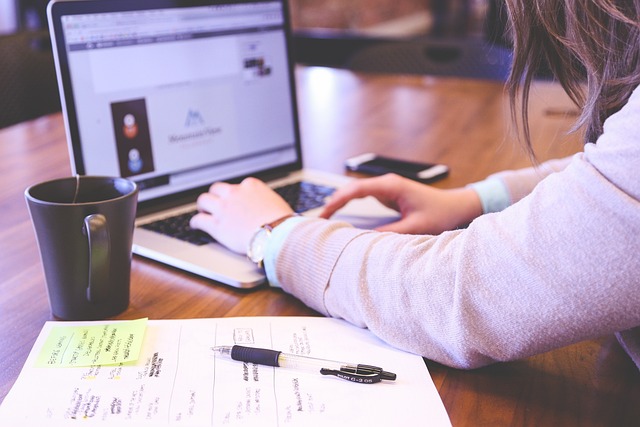When you think about personal development, what comes to mind? Maybe it’s goals, growth, or learning new skills. Indeed, self-improvement can take many forms. However, one powerful tool often overlooked is meditation. This ancient practice, rooted in various cultures, has gained renewed attention within the framework of personal development. So, let’s dive deeply into how meditation contributes to self-improvement, reinforcing its role, benefits, and implications.
Meditation is much more than sitting quietly with your eyes closed. At its core, meditation teaches us to harness the power of the mind. It allows individuals to cultivate mindfulness. This means being aware and present, which often gets lost in our busy lives. Have you ever found yourself multitasking, only to realize that you weren’t fully engaged in any task? Meditation helps ground us, steering our attention back where it belongs. By establishing a regular meditation practice, you create an anchor in your routine. This habitual mindfulness gradually enhances your cognitive abilities, enabling you to focus more intensely on your personal development goals. So, rather than feeling overwhelmed by the complexity of self-improvement, meditation serves as a guiding light, reminding you to stay present and intentional in your actions.
Furthermore, meditation fosters emotional intelligence. Now, why is emotional intelligence significant in personal development? Simple. Self-awareness, a fundamental component of emotional intelligence, empowers us to recognize our thoughts, feelings, and behavioral patterns. It opens the door to understanding how we react to different situations. When you engage in meditation, you take a step back, observing your mental landscape without judgment. This mental space helps you detach from your automatic responses and fosters thoughtful action instead. For instance, if you find yourself reacting harshly in a stressful situation, meditation can help you pause and respond more compassionately. By nurturing emotional intelligence, you’re not just improving your interpersonal relationships; you’re also challenging and reinforcing the beliefs you hold about yourself, which is essential in the journey of self-improvement.
The physical benefits of meditation also contribute to the personal development journey. As you meditate, studies show a reduction in stress, anxiety, and even physical ailments. When your body is relaxed and your mind is calm, you can better engage in self-improvement activities. Envision yourself trying to learn a new skill, like painting or public speaking, while feeling anxious or stressed. It can be quite challenging! However, with a regular meditation practice, you gradually enhance your ability to manage stress. Scientifically, meditation reduces cortisol levels in the body, which means less stress and a clearer mind. In turn, this reduction in stress leads to improved concentration, allowing you to focus on your personal development endeavors. Whether it’s committing to studying new material or pushing yourself to step outside your comfort zone, the physical benefits of meditation empower you to embrace each new challenge with grafted enthusiasm.
Let’s not forget the power of visualization, often intertwined with meditation practices. When you meditate, it’s an opportunity to visualize your goals. This technique propels you further along the path of personal development. You see, visualization isn’t just a fanciful daydream; it is a critical technique employed by many successful people. In a meditative state, when you visualize your goals as already achieved, your subconscious mind starts working towards them. It’s as if you’re planting seeds in the fertile ground of your mind. Each visualization session nurtures these seeds, eventually leading to blossoming actions in your life. Thus, meditation fosters mental clarity, allowing you to chart your course effectively, reinforcing the belief that you can achieve your self-improvement goals.
Moreover, the practice of meditation can strengthen your resilience. Personal development often requires facing challenges and navigating hurdles. Whenever you encounter difficulties, meditation offers a way to cultivate patience and resilience. By surrendering to the practice, you learn to tolerate discomfort, whether emotional or physical. This resilience translates beautifully into real-life situations. For instance, when facing challenges at work or within personal relationships, meditation equips you with the tools to navigate emotionally charged scenarios more gracefully. Each moment spent in meditation teaches you that feelings and thoughts are transient; you can observe them without being overwhelmed. Consequently, you build a reservoir of emotional resilience through practice. As the world throws challenges your way, this newfound resilience allows you to respond rather than react, enhancing your personal development journey in significant ways.
Community engagement often hinges on strong interpersonal skills. Interestingly, meditation practices, especially when done in groups, foster a sense of connection and community. Sharing meditation experiences creates a strong bond among practitioners. This bond often translates into more profound support systems within personal development frameworks. When you meditate together, not only do you share the experience of stillness, but you also develop empathy and compassion for one another. As you walk your paths of self-improvement, having a supportive community encourages you to stay committed to your goals. They uplift you when challenges arise and celebrate with you when you achieve milestones. Therefore, through meditation, you may find a nurturing community that fuels your motivation and inspires collective growth.
Let’s also address some misconceptions surrounding meditation that may hinder some from incorporating it into their self-improvement journey. Many people believe meditation must adhere to strict parameters—sitting cross-legged for hours, chanting mantras, or achieving complete mental emptiness. In reality, meditation comes in numerous forms—guided, movement, or even breathwork. It’s essential to acknowledge that meditation is a personal practice; it should feel comfortable and resonate with you. Try various methods to discover what suits you best. Incorporating visualization, as mentioned earlier, or using simple breath awareness can help ease you into the practice. This flexibility empowers you to develop a routine that aligns with your lifestyle while still providing the profound benefits that meditation offers.
Lastly, integrating meditation into your busy schedule is entirely possible. Many people believe they lack time for meditation. However, even a short, focused session can be beneficial. Consider starting with just five to ten minutes a day. Create a dedicated space in your home, free from distractions, where you can practice mindfulness. Eventually, as you find a rhythm, you might increase the duration or frequency. Consistency is key in meditation, just as in any self-improvement activity. Make this practice a non-negotiable part of your day, and witness how it transforms your mindset. Over time, you’ll likely notice enhanced clarity, motivation, and a stronger pursuit of your personal development goals. Remember, the journey of self-improvement requires patience and persistence, and meditation acts as the gentle reminder to embrace the process.
FAQs on Meditation and Personal Development
1. How does meditation enhance self-awareness?
Meditation promotes self-awareness by encouraging you to observe your thoughts and feelings without judgment. As you practice consistently, you become more attuned to your inner dialogue, leading to a deeper understanding of your emotional responses and behavior patterns, which is crucial in personal development.
2. What type of meditation is best for personal development?
There’s no one-size-fits-all answer, as different types serve different purposes. Mindfulness meditation enhances focus and awareness, while visualization meditation helps you set and achieve goals. Explore different styles to find what resonates best with your objectives.
3. Can meditation help reduce stress related to self-improvement activities?
Absolutely! Meditation has been shown to lower cortisol levels, reducing stress and anxiety. This, in turn, creates mental clarity, making it easier to tackle challenges and engage in self-improvement activities effectively.
4. How often should I meditate to experience benefits?
Consistency is more important than duration. Aim for at least 5-10 minutes daily. As you become more comfortable, you can gradually increase the time. It’s better to meditate regularly for shorter periods than to have infrequent, long sessions.
5. How can I stay committed to my meditation practice?
Set clear intentions for your practice and create a dedicated space for meditation. Consider joining a community or class where you can find support and motivation. Establishing a routine will help make meditation a non-negotiable part of your day.



